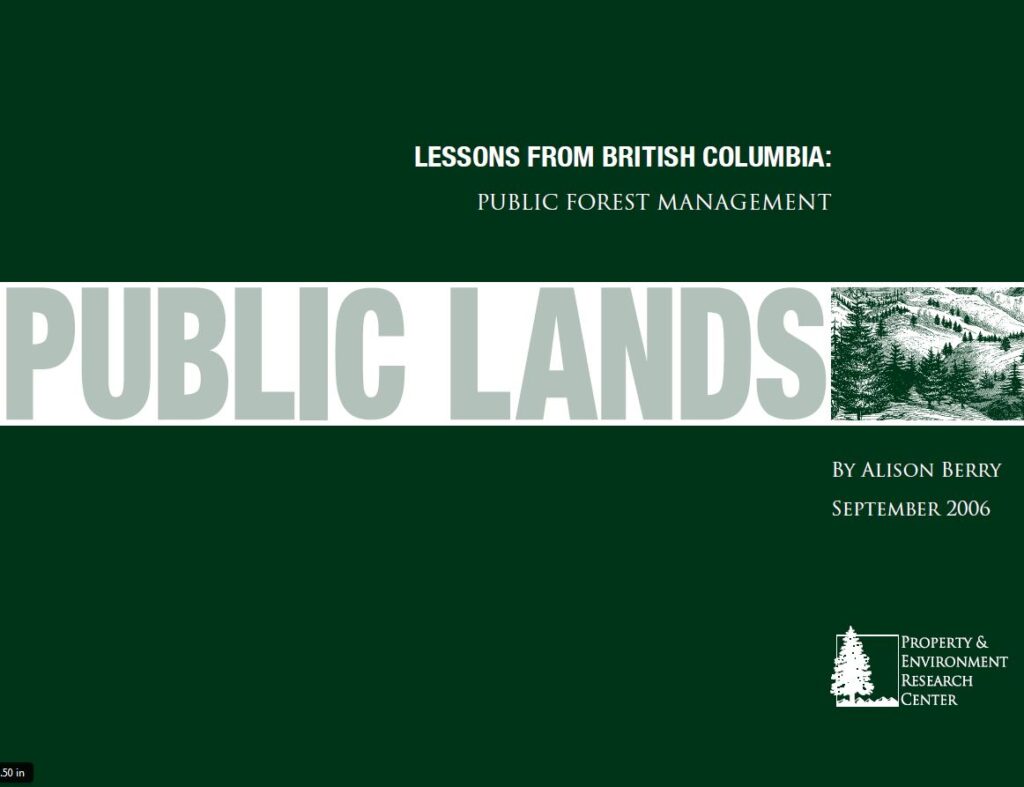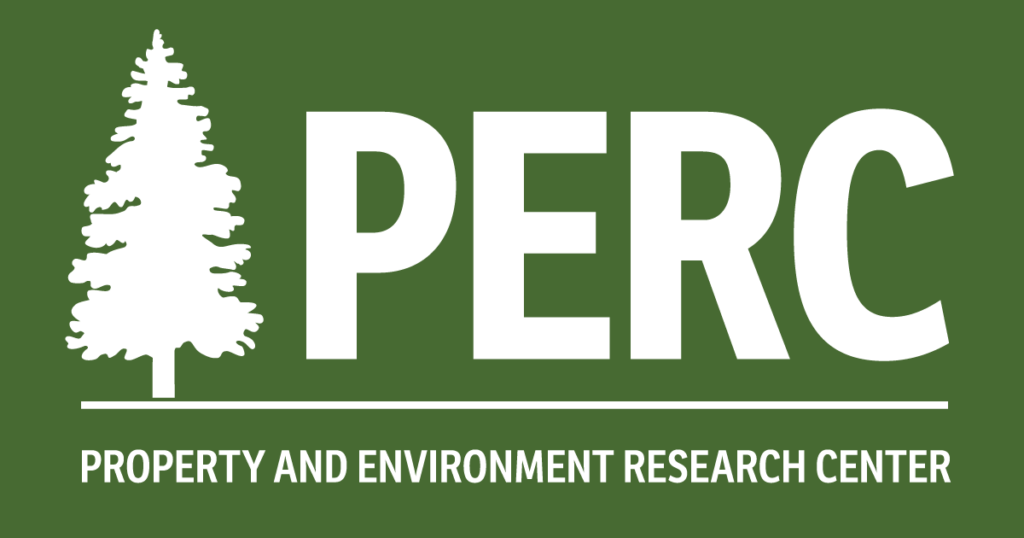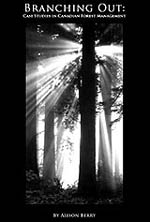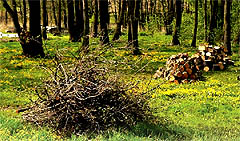All Research:
Healthy Public and Private Lands
Lessons from British Columbia: Public Forest Management
Although the forests of British Columbia, Canada, are 96 percent government-owned, the management of the forests is far more market-driven than in the U.S. Forest Service.
Letters to the Editor
A Distorted Picture of Canadian Forests Alison Berry?s article about Canadian forest management (?Timber Tenures,? March 2005) takes a somewhat truncated view of the situation?giving us all of the good but none of the bad. There are some very large downsides to the timber lease and tenure structures, and those pitfalls have causedContinue reading “Letters to the Editor”
Selling unused federal land a good idea
Seattle Post-Intelligencer April 11, 2006 By Holly L. Fretwell Guest Columnist Isn’t it great to sell your junk at a yard sale, ridding your home of the stuff that no longer fits your lifestyle but just takes up space? Yard sales illustrate the beauty of markets: Both partners benefit. The buyer gets something new; theContinue reading “Selling unused federal land a good idea”
Branching Out: Case Studies in Canadian Forest Management
The forests of North America represent enormous natural bounty. Yet, in the United States at least, the benefits of this wealth of nature are not being fully realized. Taxpayers lose money on their public forests, and the forests face severe ecological threats.
At Home in Debris
Typically in the past, rural and suburban landowners had no trouble taking care of their seasonal accumulations of brush, branches, dead leaves, and other organic debris. They piled it in the backyard and set it alight. Now, many towns and counties ban outdoor burning as the smoke can cause health problems. The alternative is toContinue reading “At Home in Debris”
Open Access:
Those who know me will not be surprised by the topic of this column, given that hunting season is in full swing. Why I have such a passion for hunting was captured beautifully by Jon Christensen, a visiting PERC journalist fellow, who spent a chilly evening with me listening to five or six big bullContinue reading “Open Access:”
Let’s lift the burden
Scottsdale Tribune June 27, 2005 Paying modest fees would enablenational parks to cover costsof protection and upkeep By Holly L. FretwellSpecial to the Tribune Load up the car. Throw in the pillows, the DVD’s, the CD’s, and headphones. The season for cross-country travel is upon us. Carloads by the millions are heading for national parksContinue reading “Let’s lift the burden”
Success Overdue at The Quincy Library
Enthusiasm surged recently in southwestern Washington when a community coalition announced that it had come up with a plan for logging Gifford Pinchot National Forest that was supported by environmentalists and industry officials alike. “We’ve identified the common ground . . . and hope the Forest Service will use this model,” said coalition memberContinue reading “Success Overdue at The Quincy Library”
Name That Species
Looking for a chance at immortality? It could be as close as the dusty file cabinet at a nearby museum. Thousands of new animal and plant species are discovered every year, only to languish in storage?unnamed, undescribed, and thus without entry into the larger scientific world. So here is your chance. Ante up a bitContinue reading “Name That Species”






